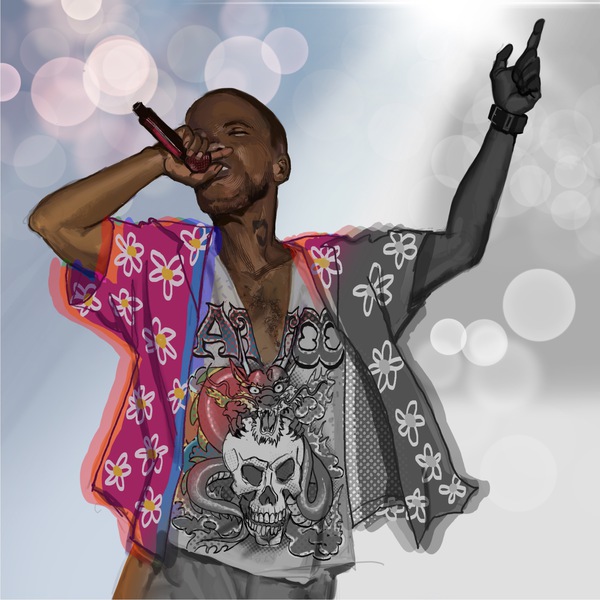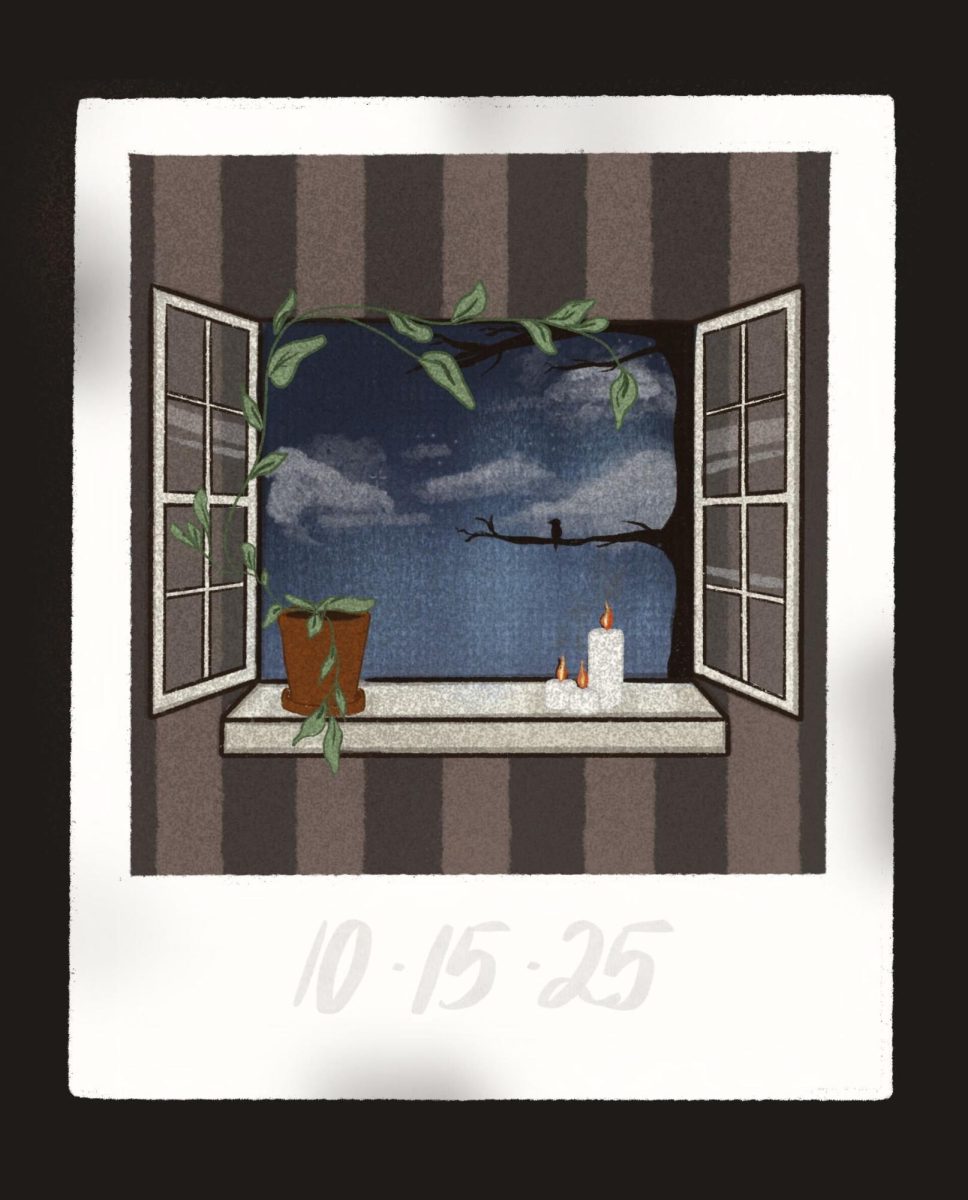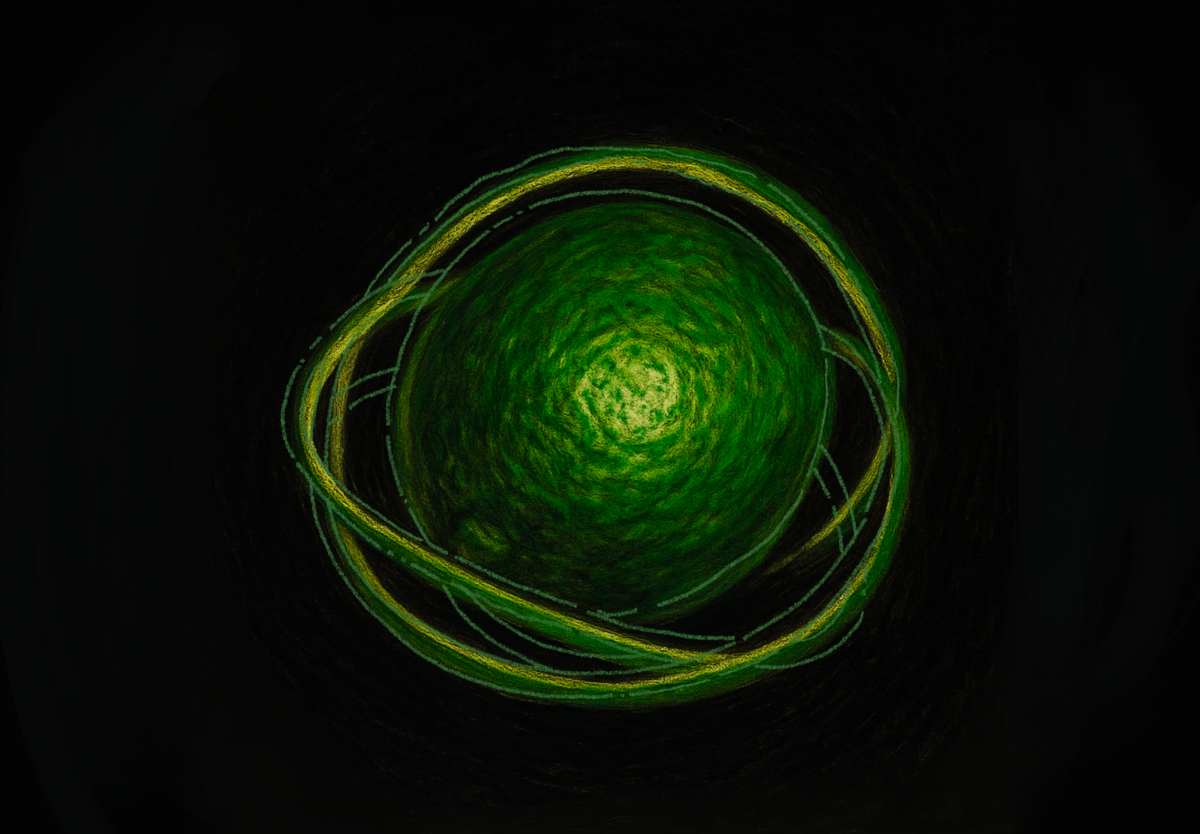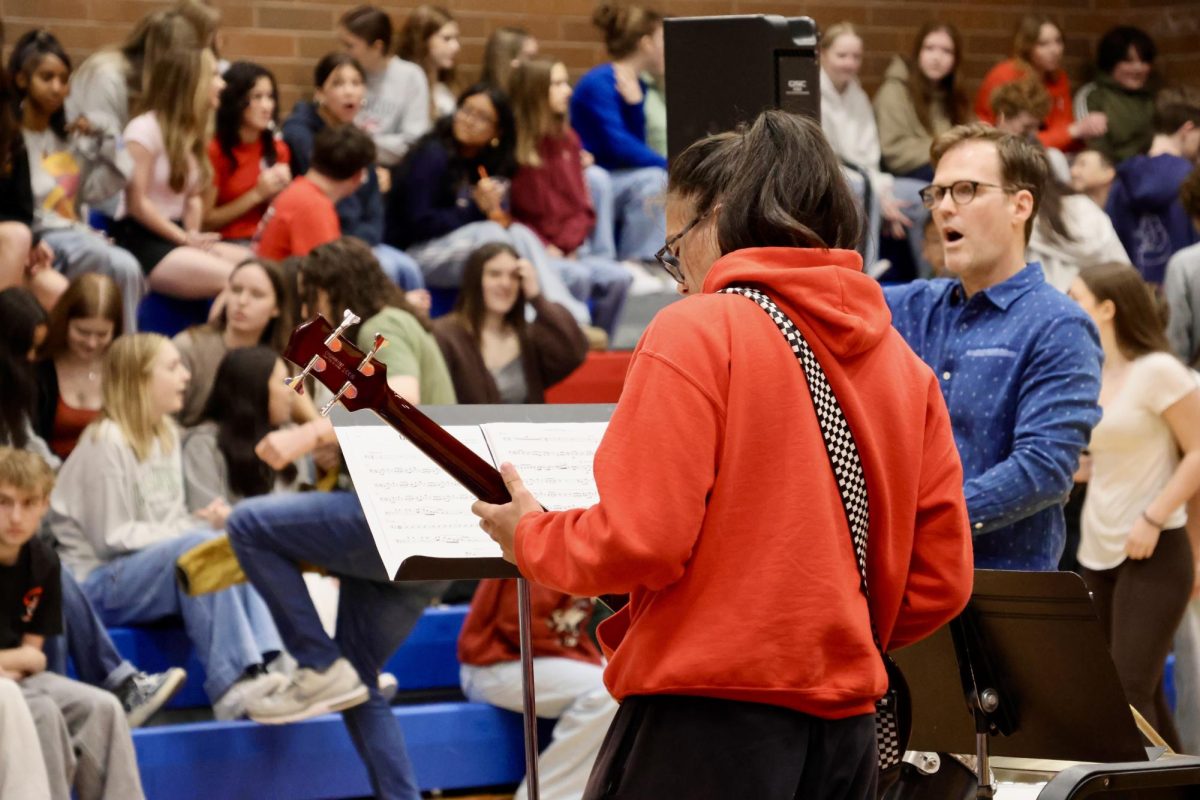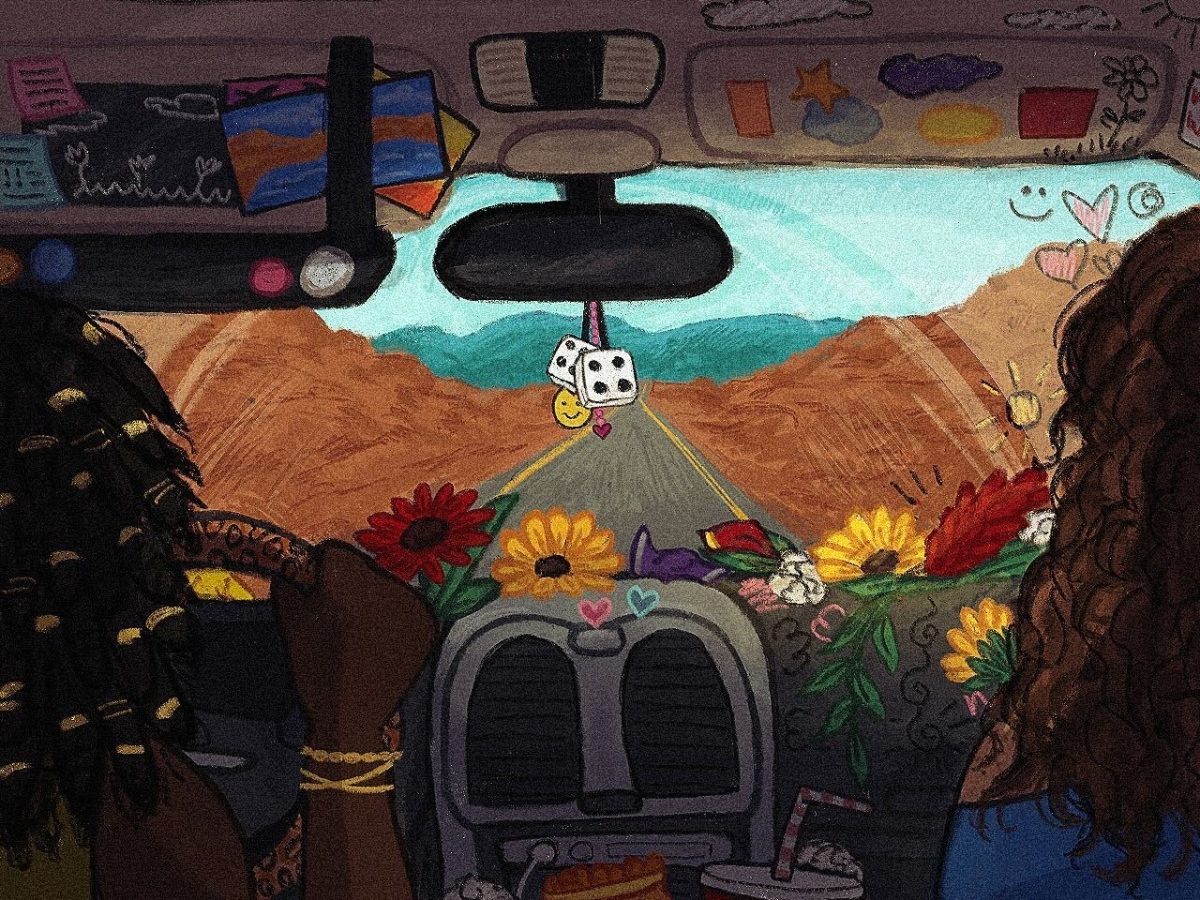On June 6, 2007, OutKast made an appearance on UGK’s “Int’l Players Anthem (I Choose You).” The track served as a sending-off of sorts for both duos — December of that year saw the death of UGK’s Pimp C, ending that group’s run, and OutKast would break up shortly afterwards. It feels more like a celebration of life than a somber eulogy, as if both duos knew they had to finish their tenures with a bang.
The song opens with a verse from the idiosyncratic André 3000, the more well-known half of OutKast. He raps from the perspective of a man about to be married, expressing his desire to distance himself from his old love life. At the end of his verse, he assumes the voice of one of his friends, telling himself, “Keep your heart, Three Stacks! Keep your heart!”
It seems almost as if André knew in this song that he was about to completely abandon rap music in the coming years, as this final line perfectly encapsulates his current relationship with music. Because while his debut solo record “New Blue Sun” sounds nothing like his earlier work, it still feels distinctly like his art. Although Three Stacks may have left his old musical act behind, his music still has his heart.
André seems to have a deep understanding of a reality that many rappers fail to grasp: rap music has an extremely short shelf life compared to other genres. He explained this realization in an interview with GQ, saying, “I’m 48 years old. And not to say that age is a thing that dictates what you rap about, but in a way it does. And things that happen in my life, like, what are you talking about? ‘I got to go get a colonoscopy.’ What are you rapping about? ‘My eyesight is going bad.’”
Simply put, he knows that rap music isn’t a medium that allows him to say anything meaningful anymore. It feels as though he understands that at this point in his life, his most significant musical contributions will come through expressions of his feelings and emotions. Rap doesn’t necessarily offer him the chance to do that. Instead of trying to push back against the inevitable, André allowed himself to evolve, maintaining his artistic individuality as a result.
Kid Cudi lies on the other end of this spectrum. Friday, Jan. 12 saw the release of “Insano,” his eighth studio album. This is more than just an album, though — it’s a harrowing symbol of a once-inventive artist’s rapid decline.
Cudi initially broke out with the release of “Man on the Moon: The End of Day” in 2009, which instantly resonated with rap fans for its vulnerable lyricism and inclusion of melody. Throughout the course of his career, Cudi has often displayed a level of relatability that is unmatched in the rest of the rap game. Songs like “Pursuit of Happiness” and “Mr. Rager” serve almost as musical therapy for listeners.
In addition, the records that he has released since his explosion into the mainstream have consistently had a distinct experimental edge, with multiple forays into psychedelic R&B and punk. Even his oft-maligned 2015 rock record “Speedin’ Bullet 2 Heaven” had some semblance of creative spirit — at the very least, it felt like Cudi was taking a risk and trying something new.
But “Insano” is completely devoid of these qualities. It feels like Cudi decided to abandon all of his strengths as an artist, almost as though he wants to make it as hard on himself as possible. This record has no trace of melody, grandeur, or vulnerability, three things that have defined Cudi’s discography.
Instead, Cudi sticks exclusively to rapping, which has always been one of the weakest parts of his skillset. He seems hell-bent on flexing as hard as he can, but he ends up saying absolutely nothing, mumbling and stumbling his way through verse after verse about hitting the club, smoking weed, or some other “cool” topic.
That’s the biggest problem with “Insano”: Kid Cudi has nothing meaningful to rap about anymore. “Insano” sees him trying to force the issue, and the results are sterile, lifeless, and corny. It feels as though Cudi needs to either transition into a different genre or retire altogether, because he simply can’t communicate anything substantial through hip-hop at this present moment.
He seems almost afraid to move away from the genre and experiment at this stage in his career, which has caused his sound to stagnate. Ironically, his refusal to stray from the lane in which he has always operated has made his music unrecognizable.
“Insano” paints what should be a harrowing picture for the rap industry, as it’s easy to see this musical malaise setting into the sound of some of this generation’s brightest stars in the future. Will Drake’s playboy act really feel authentic in a decade when he’s 47? What on Earth will Yeat be rapping about in his 30s? (And really, what on Earth is he rapping about right now?)
It’s important to point out that it’s far from impossible for older artists to remain relevant in the hip-hop industry. Take Nas as an example — despite being 50 years old, he has seen a recent career resurgence through his “King’s Disease” and “Magic” album series. This doesn’t come as much of a surprise, as Nas has made socially conscious rap for the entirety of his career. As long as there’s tumult and injustice in the world, artists like Nas will always have something of substance to rap about.
However, rappers don’t necessarily have to be particularly gifted lyricists or songwriters to remain relevant. Lil Yachty revived his flagging career with his 2023 album “Let’s Start Here,” which saw him completely shift his sound from hazy trap to experimental prog rock. In order to evolve and innovate, Yachty took real care in crafting a project that displayed his creative capabilities.
Other rappers have shown willingness to take their talents into different areas, but not for extended periods of time. For example, 21 Savage took a detour from his usual violent style for 2018’s “i am > i was,” showcasing his capability for deep introspection — however, he hasn’t really revisited this style since.
This is a common trend in rap music: artists will tinker with their sounds once every couple of records to keep fans interested before returning to their regularly scheduled programming. Certain artists will make experimentation part of every release, but these types of rappers are once-in-a-generation talents.
At some point in the near future, a large portion of the current generation of rappers will have to grapple with the fact that their lyrical content simply won’t be authentic for the rest of their careers. As rappers age, it becomes increasingly difficult to imagine them actually living out the wild lifestyles that they rap about. It’s just not realistic to believe that a 50-year-old is still regularly blowing thousands in a club or going out on a nightly basis.
But at the same time, this style of rap has lined these artists’ pockets for the entirety of their careers. Shifting away from that and taking a risk can be frightening and abrupt. It’s the same sort of fear and uncertainty that seems to permeate and surround “Insano.”
That’s precisely why “New Blue Sun” is such an impressive effort in contrast. It showed André 3000 as an artist at his most fearless, unfazed by the wild risk that his transition into ambient flute jazz posed. We shouldn’t have been surprised by this — after all, André has never been afraid of pushing boundaries — but that doesn’t make his achievement any less impressive.
Maybe experimentation doesn’t have to be as extreme as André’s. But for so many current rappers, “New Blue Sun” provides a stellar blueprint for how to respond to the pressure of innovation without compromising one’s own personal voice. It’s almost as if André is telling his fellow artists to keep their hearts through “New Blue Sun,” just as he told himself 15 years ago.
When rappers come up on their own career crossroads, where they’re forced to choose between pushing the boundaries and playing it safe, it is paramount that they’re honest with themselves about how they can best produce art. For André 3000, it was jazz. For Lil Yachty, it was prog rock. And for others like Nas, it’s still hip-hop. No matter what, artists have to embrace their creative reality instead of running from it.
Otherwise, they’ll suffer the fate of Kid Cudi: rapping a mile a minute without anything to say.


